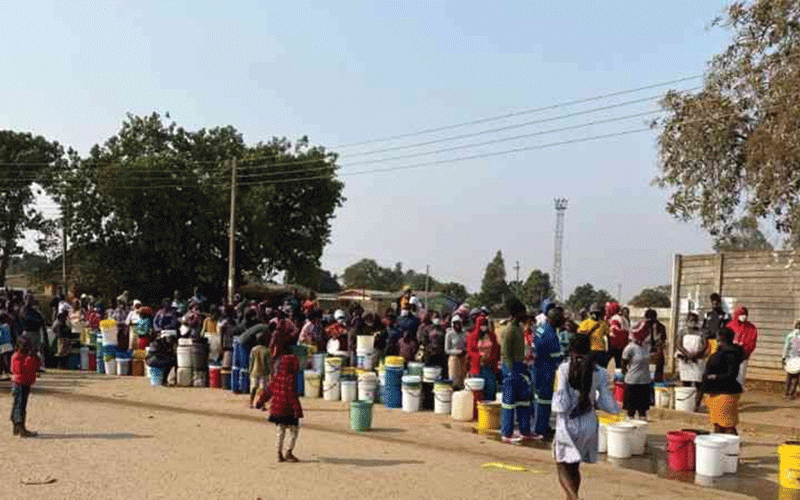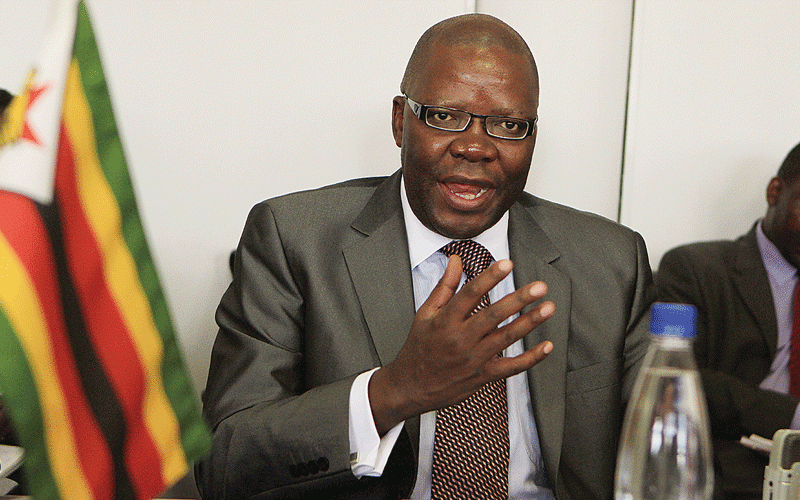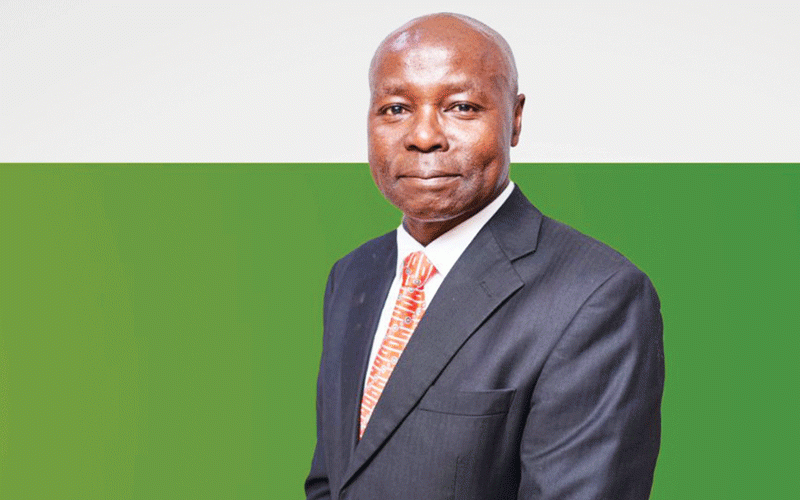BEFORE dawn’s warm glow illuminates the dusty streets of Chitungwiza, the house of water vendor Nyarai Ushe, 32, comes to life.
Ushe wakes up in her humble sanctuary, adorned with vibrant African prints and the faint scent of cooking oil, and prepares to enter the pre-dawn morning darkness.
As the house is a small, rusted iron-roofed abode, nestled in a labyrinthine neighbourhood where narrow alleys and cramped dwellings stretch, Ushe does a few house chores and gets ready to start the day.
Before Ushe is ready to head out, the chilly temperatures force her to wrap a faded woollen blanket around her shoulders to fight the crispy morning air.
She makes her way to the nearby community borehole with several 5-litre containers in her rickety wooden cart.
- Econet capex at 18% of revenues in Q3
- ZSE terminates listing of the Old Mutual Top Ten Exchange Traded Fund
- Triangle retrenches as economy bites
- Caledonia in US$42 million capex drive for 2025
- Mukuru launches mobile wallet in Zim to bolster financial inclusion
When she arrives, the silence of the morning is broken by the soft clinking of other water containers and the murmur of fellow vendors whom Ushe joins to fetch water.
It is a hub of activity where desperation and determination converge, as shown by vendors faces illuminated only by the faint light of cellphones as they draw out water.
Here, Ushe all but battles these vendors with her containers to draw out water that she carries in her cart back to her place, navigating potholed streets and crumbling sidewalks.
As she expertly manoeuvres through this poor road infrastructure, the sun rises over Chitungwiza, allowing Ushe to reach her little stand in the light.
It is here that Ushe waits for weary residents seeking respite to Chitungwiza’s water shortages to buy water from her.
Ushe sells a 5-litre bottle of water for ZiG10.
By the end of the day, Ushe averages 800 units, showing the high demand for water in Chitungwiza.
To reach this tally, however, Ushe makes several trips to the borehole during the day to re-fill her bottles.
“Business is booming, but I worry about the health risks. Finding reliable water sources is a daily struggle. Sometimes I travel miles to get water. I don’t treat the water and I fear for my customers’ safety,” Ushe said.
“Competition is fierce and prices fluctuate, but I will keep selling water because it’s a lucrative business. Some days I make nothing, but people still need water.”
Chitungwiza’s informal water vendors have created a thriving, albeit unregulated, market for water selling.
As residents grapple with a severe water shortage, these vendors have provided a lifeline for many, navigating the challenges of scarcity and desperation.
On the other side of the town, Katsvanga, 43, quickly dresses in his well-worn attire — a faded T-shirt and shorts that have seen better days.
Every morning, Katsvanga grabs his sturdy, brightly-coloured plastic containers, which stand out against the earthy backdrop.
And today, like many days before, he will make the journey to a nearby river to collect water.
The path to the Nyatsime river is familiar, winding through a mix of informal settlements and small shops that are just beginning to open.
As he heads to the river, Katsvanga greets his neighbours with a friendly nod, exchanging smiles and quick hellos, a testament to the community spirit woven into these small interactions.
Upon arrival, Katsvanga finds other vendors, waiting for their turn at the water source.
He joins the queue, engaging in conversation with fellow vendors about the latest happenings.
Finally, when it’s his turn, he carefully positions his containers under a makeshift spout that draws water from the river, watching as the water flows in.
The gentle sound of splashing water is comforting, a reminder of its significance in their daily lives.
“I used to be a cobbler, but with the water shortage, I saw an opportunity to help my community and make a living. I know that this water will not only quench my family’s thirst but will also be sold to neighbours who depend on me for their supplies. Now, I sell water every day,” Katsvanga said.
According to Katsvanga, his daily sales are impressive.
Per day, he sells 400 20-litre buckets at US$1 per 5 buckets.
Chitungwiza Progressive Residents Association programmes director Admire Zaya said the water woes had created water barons.
“Some informal water vendors have monopolised some water points and taken over water allocations and pricing from the borehole owners,” he said.
“Some are charging from US$1 per four 20-litre buckets opposed to owners whose charges range from US$1 per eight to 12 20-litre buckets. To curb this vice some borehole owners are selling only to their neighbours, while some are selling water in the morning and evening only to avoid these water barons.”
Zaya said some boreholes were now dysfunctional. Those that are functioning are now hives for nepotism, partisan and corruption.
In that regard, some residents in areas where city council water comes out of the tap are buying more buckets so that they have more water reserved until the next allocation.
However, the informal nature of these markets means that vendors often operate without licences or regulation, leading to concerns about water quality and safety.
Chitungwiza Business Community Trust chairperson Tendai Mareya said the severe water scarcity was pushing numerous businesses on the brink, as excessive costs of purchasing water and unsafe alternatives threaten their viability.
“Many businesses are about to close shop because of the shortage of water. Businesses are are buying water and the overheads are too much. And some are now fetching water from unsafe places and we afraid of some waterborne diseases,” he said.
Mareya said the unregulated water supply chain increases the risk of waterborne diseases like cholera, typhoid and diarrhoea.
However, business owners say they have no choice but to rely on these vendors due to inadequate piped water supply and the high cost of bottled water.
Chitungwiza Municipality spokesperson Tafadzwa Kachiko said the rise of informal water vendors was a direct response to the dire circumstances faced by residents.
“The public domain knows we are facing serious water crisis. It’s no surprise that informal water vendors have mushroomed to fill the gap from boreholes or other private suppliers, marking a shift in how water is distributed in the area,” he said.
The market emergence of informal water vendors is a direct response to the municipality failing to provide water.
According to the Zimbabwe National Water Authority, Chitungwiza gets its water from Seke and Harava Dams.
However, as of November 4, last month, the authority reported water levels in the various dams at significant disparities.
Seke Dam is considerably lower at 12% capacity, but even more concerning is the Harava Dam, where just 3,1% water levels were recorded by the authority.
Both dams were negatively affected by this year’s El Nino.













